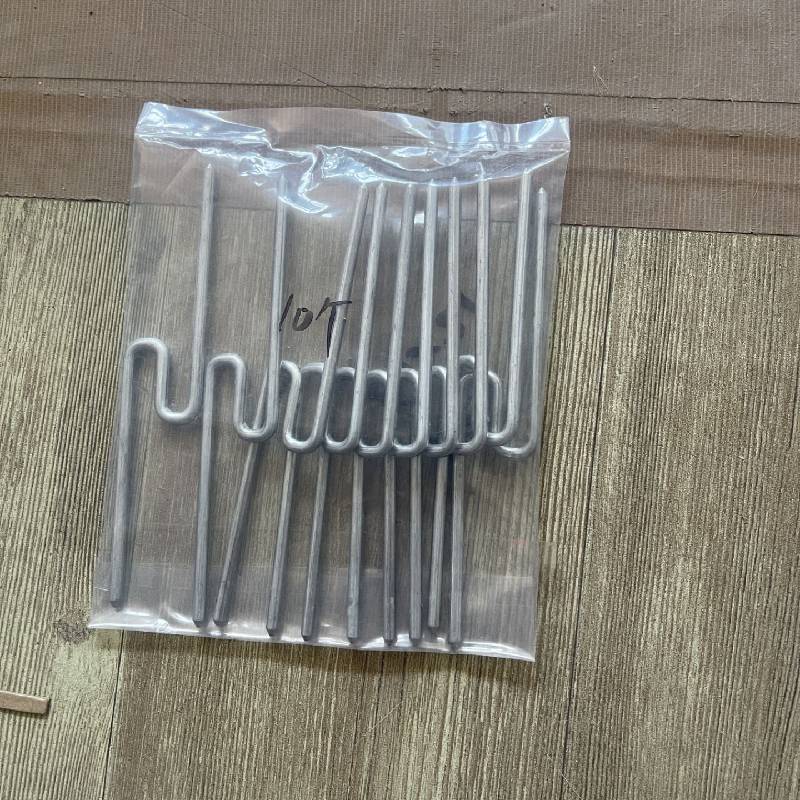
- Mobile Phone
- +8613931874955
- sales@cntcmetal.com
Innovative Applications and Benefits of Black Iron Wire in Various Industries and Projects
The Versatility and Sustainability of Black Iron Wire
Black iron wire, a staple material in various industries and applications, deserves a closer look due to its unique properties and versatility. Made primarily from low carbon steel, this wire is characterized by its dark, nearly black color, which results from the coating of iron oxide that forms during the manufacturing process. Understanding the uses, benefits, and sustainability of black iron wire helps highlight its importance in today’s industrial landscape.
Applications of Black Iron Wire
Black iron wire is widely used in agriculture, construction, crafting, and industrial applications. In agriculture, it serves as fencing wire for livestock, creating durable enclosures that withstand harsh weather conditions. Its strength and flexibility make it ideal for binding materials, making it a favorite choice among farmers.
In the construction industry, black iron wire plays a crucial role in reinforcing concrete structures. It is often used to create rebar tie wire, ensuring that steel reinforcement bars stay securely in place during the pouring of concrete. This application underscores the wire's strength and reliability, essential for the integrity of buildings and infrastructure.
Moreover, black iron wire is popular among artisans and crafters. Its pliability allows for intricate designs in jewelry making, home decor, and sculptures. Artists appreciate the wire because it can be easily manipulated to achieve various shapes, making it an essential tool in creative pursuits.
Benefits of Black Iron Wire
One of the most significant advantages of black iron wire is its affordability. Compared to other materials such as stainless steel or aluminum, black iron wire is cost-effective, making it accessible to a broader range of consumers and industries. This affordability does not compromise its strength, as black iron wire is known for its tensile strength and durability.
black iron wire

Additionally, black iron wire is highly adaptable. It comes in various gauges, allowing users to select the appropriate thickness for their specific needs. This adaptability extends to its usage in different environments, including outdoor and indoor applications. The wire's resistance to deformation ensures that it retains its shape and functionality even under stress.
It’s worth noting that black iron wire can also be treated with various coatings to enhance its resistance to rust and corrosion. While the untreated version is suitable for numerous applications, coated black iron wire extends its usability, making it suitable for more demanding environments.
Sustainability Aspect
In today’s world, sustainability and eco-friendliness are increasingly gaining importance in production processes. Black iron wire, being made from recyclable materials, aligns well with sustainable practices. It can be melted down and reformed into new products, thereby reducing waste and conserving resources. The long lifespan of black iron wire means it does not need frequent replacements, further contributing to its sustainability.
As industries increasingly shift towards greener alternatives, the role of black iron wire could become more prominent. By employing recycled materials in its production and ensuring that it can be recycled at the end of its life cycle, black iron wire supports a circular economy.
Conclusion
In summary, black iron wire is more than just a simple metal wire; it is a versatile and sustainable material applicable across various industries. Its affordability, strength, and adaptability make it a favored choice among professionals and artisans alike. Furthermore, its compatibility with sustainable practices positions it well for the future, as more industries seek to reduce their environmental footprint. Whether used in agriculture, construction, or art, black iron wire continues to prove its worth as an essential tool in modern society.
share:
-
Yard Sign Stakes: Reliable Guardians of Outdoor SignsNewsAug.04,2025
-
Wall Ties: Invisible Guardians of Building StabilityNewsAug.04,2025
-
Resilient Web: The Super Guardian Power of Concrete MeshNewsAug.04,2025
-
Masonry Accessories: A versatile assistant on building foundationsNewsAug.04,2025
-
Iron Binding Wire: the 'invisible reinforcement specialist' in the fields of architecture and industryNewsAug.04,2025
-
Dynamic Spring: The diverse functions and excellent performance of Wire Tension SpringNewsAug.04,2025
-
Your Source for Concrete Wall Ties and Masonry AccessoriesNewsJul.10,2025



















